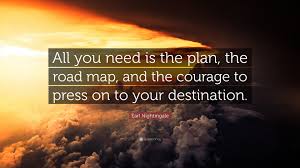Why Beginners Struggle With Guitar
If you’re ready to begin your journey on guitar, then you know there are many questions about gear, playing, picks, strings, how to sit, how to count, how to READ, the list just goes on and on. You have that burning desire to play, and learn the songs and solos you listened to a million times, or saw live! But you need answers first! So you scour the internet for tips and opinions, and end up just where you started, if not worse, with more questions.
With years of experience teaching under our belt, helping students to hit their goals, we can say that there are many ways students can succeed, and just as many (or more) ways they can fail at guitar.
In this article, we’d like to firstly list the top things you should AVOID as a beginner guitar student. If you can notice these problems, and make a change, you will see improvement in your playing, confidence, and overall attitude as a guitarist, beginner or otherwise.
No Plan = No Improvement
Have a plan, or a teacher who can implement a plan for you. Whether or not you are currently taking lessons with us, or any teacher, or no one at all, you should have some kind of plan. You need concrete goals to shoot for, and plateaus to aim at. Learning how to overcome issues is biggest hurdle to success.
Ask yourself:
- how many songs do I want to learn in 6 months?
- Can I learn that many solos?
- I want to write X many songs in a year?
- Improve my ability with theory, and can that improve my ability to produce?
- what steps do I take to plan all this?
- examine my improvement?\
- if I struggle with guitar, do I know how to practice effectively?

You gotta have a plan. The ability to examine where you are, where you started, and what to do next is akin to a superpower. Hold yourself accountable to practice, even when you don’t feel like it. Without that, you’ll have a hard time with the next issue!
Bad Teacher
Sloppy lame lazy teachers. This is one of the big killers. Perhaps the biggest of them all. It’s certainly up for debate. There are loads and loads of bad teachers out there, with no experience, no education, no real world knowledge, and worst of all, no plan for their students to grow. Either because they really don’t have any interest in teaching, or they simply where never taught how to teach, they are one of the biggest reasons beginners struggle with guitar.
We currently talk about this from time to time in our group, DGA Masterminds, as well as many other topics (some are a little too advanced for beginners).
If you’re taking lessons at a school, or with another teacher, here are some things to look out for if you are concerned you may have a bad teacher:
- The Teacher is unprepared, or late to lessons
- Instead of listening to you play, the teacher spends more time playing themselves.
- There is a lack of enthusiasm
- It seems as though there are no goals laid out by the teacher.
- The ability the teacher has to explain and show by example is lacking.
A bad teacher kills student motivation for a number of reasons. First, the student assumes this is how guitar lessons should be, since the teacher being hired to do this job is the “expert”. The student then assumes the crappy lessons they are getting will be like this always, so why bother?
A good teacher can take that initial burning desire a student has to play guitar, and help them hone in and make fast progress, which will create a positive effect that the student will want to continue learning more songs!

Expecting Instant Results - No Patience
Music is an art form, not instant oatmeal. The honest truth about playing music is that it takes years of dedicated practice to even be an average player. This is also true if you are a songwriter, or a producer. It doesn’t come from magic, or inspiration, it is a byproduct of patience.
Any teacher or guitar player that can play at a high level will tell you that the dedication will trump talent any day. Be patient, practice with a purpose, and you will succeed.
Practicing a song or technique a few times, and thinking you have it ‘down’, is simply not true. There are a multitude of ways to practice a single thing, enough variance to last months of practice on one single idea. It’s practically endless!
For beginner students on guitar, the desire to play often supersedes the perception to play well! Balance this! Learn lots of songs, but always be willing to go back to them at a later date and clean up some messy spots, or even add something to the arrangement that you couldn’t do previously.
Not Having Material - Having Too Much Material
Know what you know, before trying to learn more! This part is about the guitar students who have this notion that if they simply download/buy as much material as they can get their hands on, they have learned it! Instead you should be focused on mastery of the material you have in front of you. Then, once the material is truly mastered, move on.
Our strumming pattern ebook, for example, is one piece of material a student could download, work through, and it would practically take months to really have all the material “learned”.
Let’s use that book as an example, the link is below. Download and follow along:
You’ve got the book! Now, let’s go through a checklist of some things you could try as a beginner guitarist, to get more out of what is in this book:
- Correctly perform exercises 1-10
- You can play exercises 1-10 with different chords
- Use 3 or 4 chords to play exercises 1-10
- Practice all exercises using only upstrokes
- Play them using variants on chords (sus2, sus4, add9, 7ths 9ths 13ths etc)
- Create your own songs using these patterns
Do you see how much material you could get from just this one short book? These ideas apply to nearly everything you’re to learn as a beginner guitarist.
To conclude, here are the top things too avoid, and if you can recognize them and change, you will see improvement!
- Have a plan, or a teacher who can help you implement a plan
- Avoid bad teachers!
- Don’t expect Instant Results, this is an art form, not oatmeal
- Know what you know, and don’t chase lots of goals without first completing the ones you already need to.






